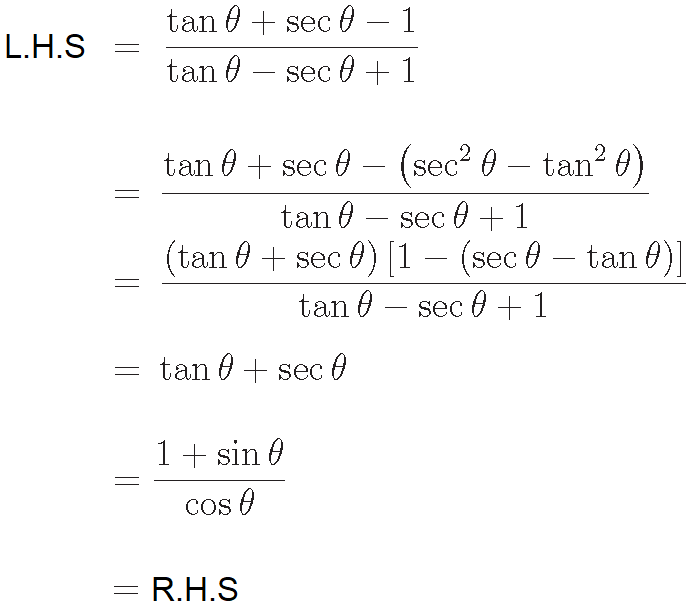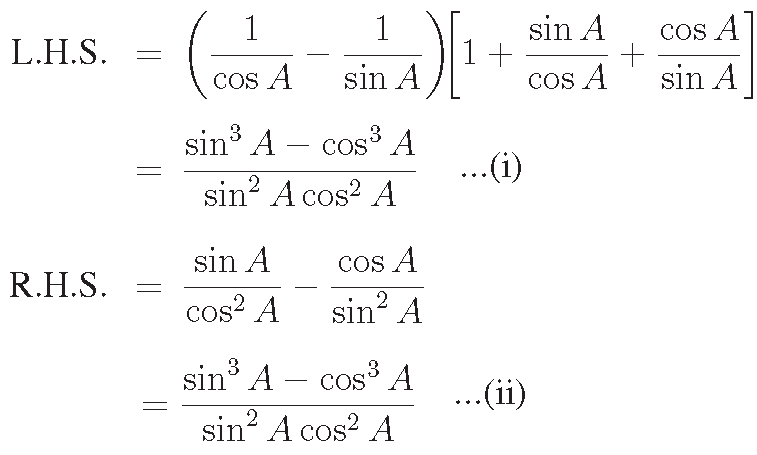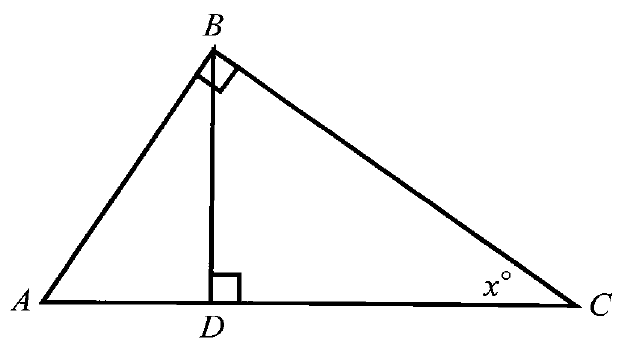BASIC TRIGONOMETRIC IDENTITIES
A trigonometric identity represents a relationship that is always true for all admissible values in the domain.
For example,
sec θ = 1 / cos θ
is is true for all admissible values of θ. Hence, this is an identity.
However,
sin θ = 1/2
is not an identity, because the relation fails when θ = 60°.
Identities enable us to simplify complicated expressions. They are the basic tools of trigonometry which are being used in solving trigonometric equations.
The most important part of working with identities, is to manipulate them with the help of a variety of techniques from algebra.
Let us recall the fundamental identities (Pythagorean identities) of trigonometry, namely,
sin2θ + cos2θ = 1
sec2θ - tan2θ = 1
csc2θ - cot2θ = 1
Points to Remember
1. sin2θ is the commonly used notation for (sin θ)2, likewise for other trigonometric ratios.
2. sec2θ - tan2θ = 1 is meaningless when θ = 90°. But still it is an identity and true for all values of θ for which sec θ and tan θ are defined. Thus, an identity is an equation that is true for all values of its domain values.
3. When we write
sin θ / (1 + cos θ),
we understand that the expression is valid for all values of θ for which (1 + cos θ) ≠ 0
Solved Problems
Problem 1 :
Prove that

Solution :

Problem 2 :
Prove that
(secA − cosecA) (1 + tanA + cotA) = tanAsecA − cotA cosecA
Solution :

From (i) and (ii), we get the required result.
Problem 3 :
Eliminate θ from
a cos θ = b
c sin θ = d
where a, b, c, d are constants.
Solution :
a cos θ = b
Multiply each side by c.
ac cos θ = bc
Square each side.
(ac cos θ)2 = (bc)2
a2c2 cos2θ = b2c2 -----(1)
c sin θ = d
Multiply each side by a.
ac sin θ = ad
Square each side.
(ac sin θ)2 = (ad)2
a2c2 sin2θ = a2d2 -----(2)
Add (1) and (2).
a2c2 cos2θ + a2c2 sin2θ = b2c2 + a2d2
a2c2(cos2θ + sin2θ) = b2c2 + a2d2
a2c2(1) = b2c2 + a2d2
a2c2 = b2c2 + a2d2
Kindly mail your feedback to v4formath@gmail.com
We always appreciate your feedback.
©All rights reserved. onlinemath4all.com
Recent Articles
-
Digital SAT Math Problems and Solutions (Part - 144)
Apr 14, 25 07:27 PM
Digital SAT Math Problems and Solutions (Part - 144) -
Quadratic Equation Problems with Solutions (Part - 1)
Apr 14, 25 11:33 AM
Quadratic Equation Problems with Solutions (Part - 1) -
Quadratic Equation Problems with Solutions (Part - 2)
Apr 14, 25 11:22 AM
Quadratic Equation Problems with Solutions (Part - 2)
